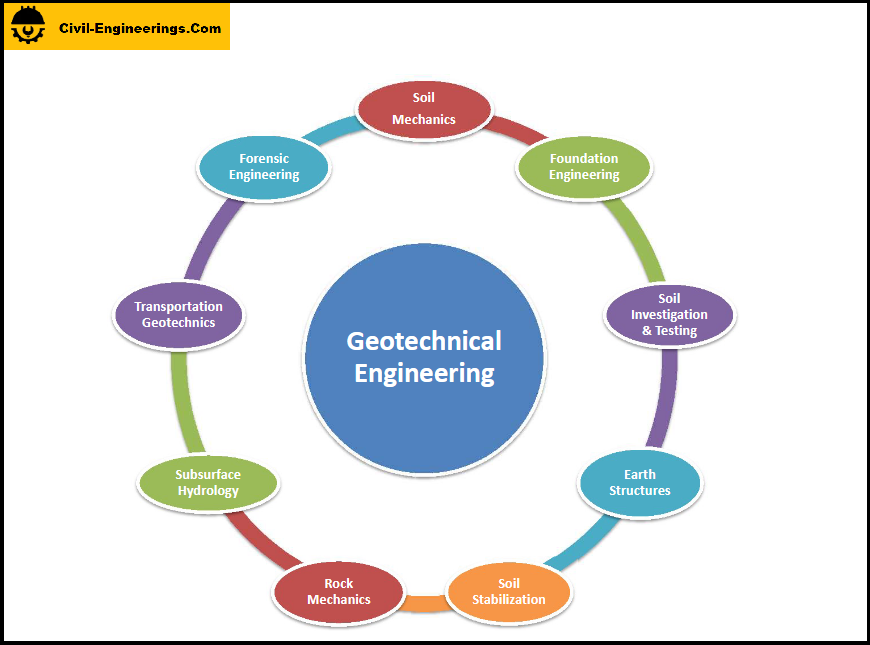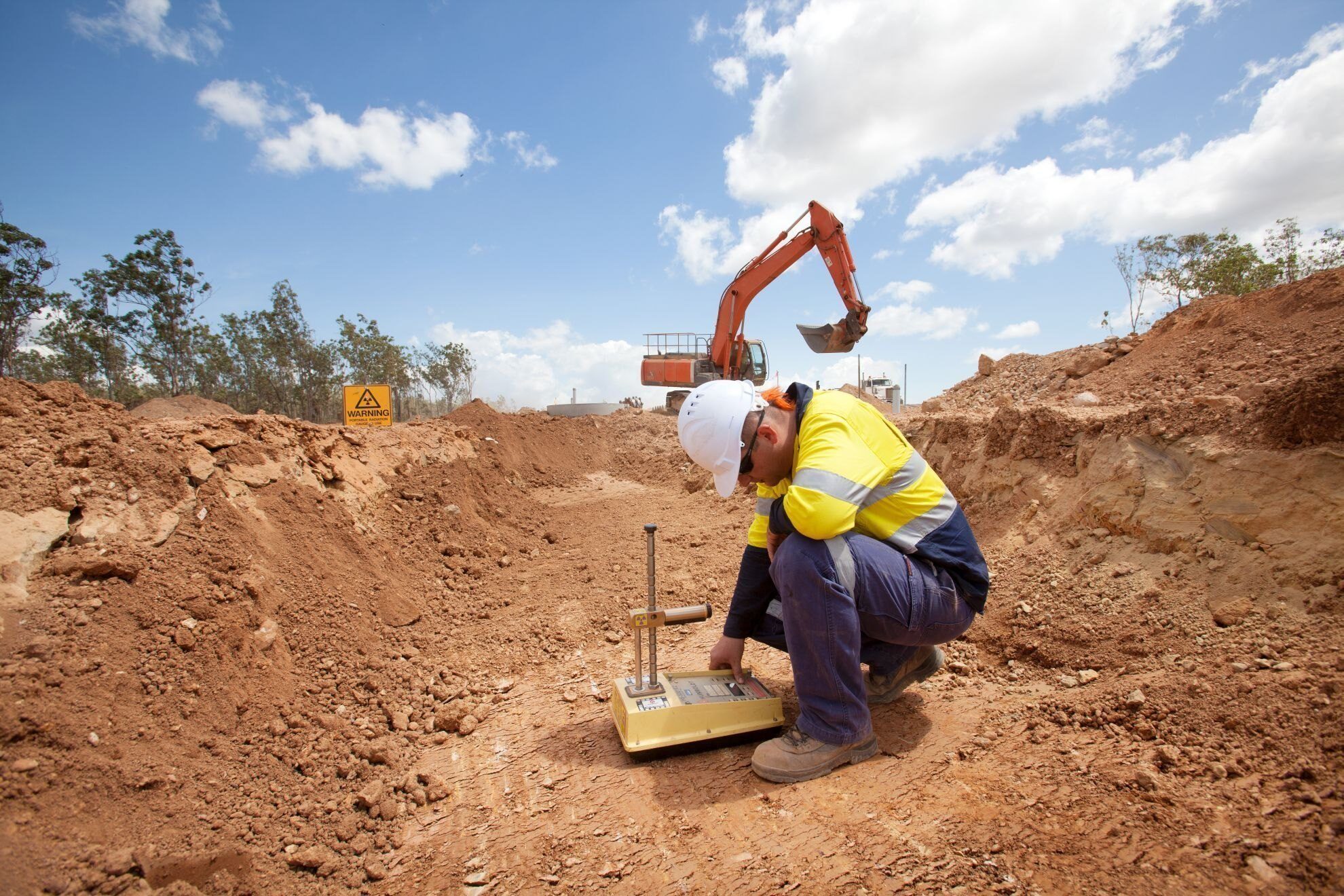Some Known Details About Geotechnical Engineering For Construction Projects
About Geotechnical Engineering For Construction Projects
Table of ContentsUnknown Facts About Geotechnical Engineering For Construction ProjectsGeotechnical Engineering For Construction Projects - An OverviewNot known Details About Geotechnical Engineering For Construction Projects Rumored Buzz on Geotechnical Engineering For Construction ProjectsThe Basic Principles Of Geotechnical Engineering For Construction Projects
As a result, throughout the examination, it is essential to pierce at the called for depth and the needed number of holes according to the recommendation of the Canadian Foundation Design requirement. Often, the proprietor could save some Geotechnical Examination expense but wind up spending more than the anticipated during the building and construction price.The duties of the geotechnical specialist involve giving material screening for building support. Geotechnical Engineering for Construction Projects. Geotechnical designers analyse all the field examination records to guarantee that building is taking place based on the project requirements. Throughout construction, a confirmatory test for dirt compaction is done on-site to make certain that no future negotiation occurs
After the concrete is poured -7 days and 28 days- tests are carried out on concrete examples collected from the site to ensure that the concrete poured satisfies the style requirement. Asphalt core is taken after the Asphalt is laid and compacted to confirm that it meets the design requirement. All laboratory test records are evaluated by the Geotechnical Designer to guarantee that it fulfills the project specification.
An Unbiased View of Geotechnical Engineering For Construction Projects

Geotechnical design plays a critical function in guaranteeing the security of building and construction tasks. Geotechnical design is a crucial branch of civil engineering that concentrates on recognizing the practices of planet products, such as soil and rock.

For a trustworthy foundation and a smooth building and construction procedure, depend offer the know-how you require. Get in touch with to obtain specialist advice and geotechnical solutions tailored to your following project.
All about Geotechnical Engineering For Construction Projects
When starting a land development project, comprehending the ground below your feet is as crucial as the frameworks you plan to develop above it. Our Geotechnical Design team evaluate the ground, guaranteeing it is suitable for the proposed growth while offering you with the info called for to meet your project goals.
Geotechnical Design takes a look at the development of the ground, as it is the building blocks for all projects. Where frameworks need to be developed relative to the ground problems; ground conditions (e.g., soft ground) may call for strengthening relying on the size of the designated framework. Before building, you need to learn about the groundwater, dirt structure, and liquefaction probability of your land.
For sites that are not connected on the regional authority framework added website investigations would certainly be called for to offer technological inputs More Bonuses for on-site stormwater and wastewater. We have actually experienced Geotechnical Engineers based in each workplace, supporting your geotechnical needs nationwide. Reach out to us to review just how we can sustain your next job.
These reports are customized to meet the particular requirements of a job and include style criteria and advice for the construction of a variety of man-made frameworks. As well as providing working as a consultant solutions covering locations such as incline security and load-bearing capabilities for different materials, these designers carry out r & d tasks to boost methods, tools, products knowledge and evaluation covering entire lifecycles.
What Does Geotechnical Engineering For Construction Projects Do?

Rates of pay normally boost as your knowledge and abilities expand, with standards directing to a graduate starting wage of in between 18,000 and 28,000 per year in the UK. This rises to 26,000 to 36,000 with a couple of years of experience and afterwards reaching 40,000 to 60,000+ for elderly, chartered or master engineers.
With the ideal application it is feasible to master the profession and gain entry to a difficult yet fulfilling and crucial profession. A geologist would need to retrain to come to be a geotechnical engineer, although there is lots of cross-over between both professions, which can make this simpler - Geotechnical Engineering for Construction Projects. Geologists require to have an understanding of soils, rocks and various other materials from a scientific go now viewpoint, while geotechnical designers tale their knowledge of issues such as dirt and rock mechanic, geophysics and hydrology and apply them to engineering and environmental jobs
When starting out, these engineers will have a tendency to deal with less complicated jobs, developing understanding and experience all set for more tough job later. Geotechnical engineers tend to be experts in certain areas as they expand in experience, concentrating on specific facilities such as trains, roadways or water. These designers also function with renewable energy, offshore and onshore oil and gas, nuclear power, and a lot more.
8 Easy Facts About Geotechnical Engineering For Construction Projects Explained
The time taken to come to be a click this geotechnical designer depends on where you are based, where you research study and what level of education you want to obtain prior to entering the workplace. Generally-speaking it takes 3-4 years to get to the standard demands to start an occupation as a geotechnical designer.
These procedures make it possible for specialists to analyze a host of soil auto mechanics consisting of weight, porosity, void-to-solid bit ratio, permeability, compressibility, optimum shear strength, bearing capacity and deformations. If the structure requires a deep foundation, engineers will make use of a cone infiltration examination to estimate the amount of skin and end bearing resistance in the subsurface.
When evaluating an incline's equilibrium of shear anxiety and shear strength, or its ability to endure and undertake activity, rotational slides and translational slides are generally considered. Rotational slides stop working along a bent surface area, with translational slides occurring on a planar surface. An expert's objective is to identify the problems at which a slope failure could happen.
Frequently, findings recommend that a website's soil need to be treated to boost its shear stamina, tightness and permeability before design and building and construction. When it comes time to set out structure strategies, professionals are progressively focused on sustainability, even more specifically how to reduce a foundation's carbon impact. One tactic has been to replace 20 percent of a foundation's cement with fly ash, a waste item from coal fire power plants.